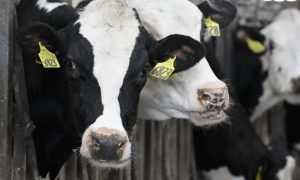
Within the framework of International Cheese Day, which is commemorated this March 27, MSD Animal Health in the Southern Region recognizes the people in charge of the production of this foodstuff. Argentina alone has a variety of more than 100 types of cheese.
For Guillermo Gargantini, Technical and Marketing Manager of the Livestock Unit at MSD Animal Health in Argentina, “having a quality dairy product, which has an essential flavor and nutritional value, is totally related to the production process, but, above all, to the origin of the milk”.
“That is why we, as a pharmaceutical company committed to the health and welfare of animals, provide support to the livestock industry so that it takes into account the application of appropriate hygiene measures, comprehensive health and welfare of dairy cattle,” said the member of the Livestock Unit at MSD Animal Health in Argentina.
As part of this exquisite international celebration, MSD Animal Health in the Southern Region shares with you facts that you may not have known about the nutrients contained in cheese:
Cheese is a very complete food and recommended for children, as it provides calcium, phosphorus, zinc, high quality proteins and vitamins B12, D and A, which help growth.
Its nutritional composition varies according to the water content used in its preparation. The lower the amount of water, the higher the concentration of nutrients per 100 grams of cheese.
The mineral content in cheese is higher than in milk, especially calcium and phosphorus. They are found in proportions 4-5 times higher in fresh or soft cheeses, 7-8 times in semi-hard cheeses and up to 10 times in hard cheeses.
Cheese, like milk, is essential for the strengthening of bones, teeth, muscles, nervous system and heart.
Pasteurized cheese can be as tasty as artisan cheese. In addition, it offers a total guarantee for our health and a much less heavy digestion.Sheep’s and goat’s milk cheeses have a higher calcium content than those made from cow’s milk.
Cheese contains a large amount of folic acid, making it a food to consider during pregnancy.
The benefits of cheese consumption provide our body with high nutrients, but it is always important to remember that we must maintain a balanced diet; any product in excess can be harmful to our health.
























